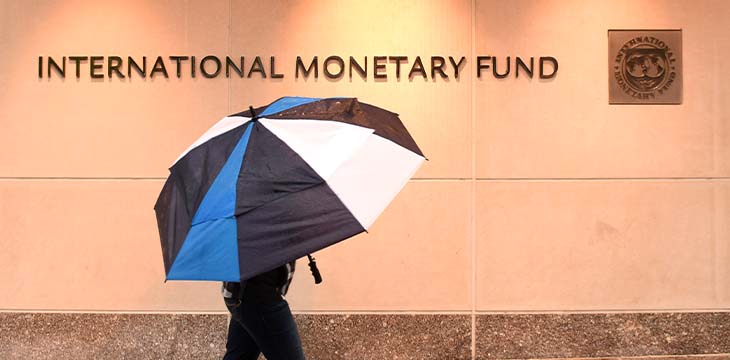|
Getting your Trinity Audio player ready...
|
The International Monetary Fund (IMF) has recently released a report that Russia might have found a way to evade international sanctions. It says that mining BTC could be a possibility of running away with economic boycotts.
Since the start of Russia’s invasion of Ukraine, major world economies such as the U.S., Canada, and the European Union have imposed a wide number of sanctions on the country. The embargoes include banning Russia from using decentralized digital assets with some help from centralized exchanges (CEXs).
“Regulators in the United States and [the] United Kingdom, among others, have urged firms in their jurisdictions, including the crypto asset sector, to increase vigilance with regard to potential Russian sanction evasion attempts,” reads the report.
An opportunity for Russia becomes a major global problem
In its latest “Global Financial Stability Report,” the international organization says that the Russian government could use some tools to dodge sanctions outside of traditional finance’s jurisdiction. Pointing out to block reward mining, the IMF believes that Russia could massively boost its Bitcoin mining department.
“Over time, sanctioned countries could also allocate more resources toward evading sanctions through mining,” the IMF stated. “The monetization happens directly on blockchains and outside the financial system where the sanctions are implemented. Miners can also generate revenues directly from users that pay transaction fees to miners,” it added.
According to the IMF, Iranian miners could get hold of only 3% of the $1.4 billion Bitcoin mining monthly average revenue from last year, while Russian block reward miners could have taken a nearly 11% share.
At this point, the mining shares in countries under sanctions and overall size of mining revenues “suggests that the magnitude of such flows is relatively contained, although risks to financial integrity remain,” says the IMF.
Moreover, although Russia’s Central Bank decided to put regulations against Bitcoin mining at the start of 2022, it appears that President Vladimir Putin has changed his mind. He said that Russia has “competitive advantages” in terms of digital mining, according to the official website of the president.
Other than block reward mining, Russia could use the help of decentralized exchanges (DEXs) or the virtual asset platforms that do not comply with the international sanctions.
According to a Bloomberg report, since the start of the war in Ukraine, Russia has become the most sanctioned country with more than 400 boycotts against it, running passed Iran and even North Korea.
Watch: CoinGeek New York panel, Investigating Criminal Activity on the Blockchain

 02-20-2026
02-20-2026 




